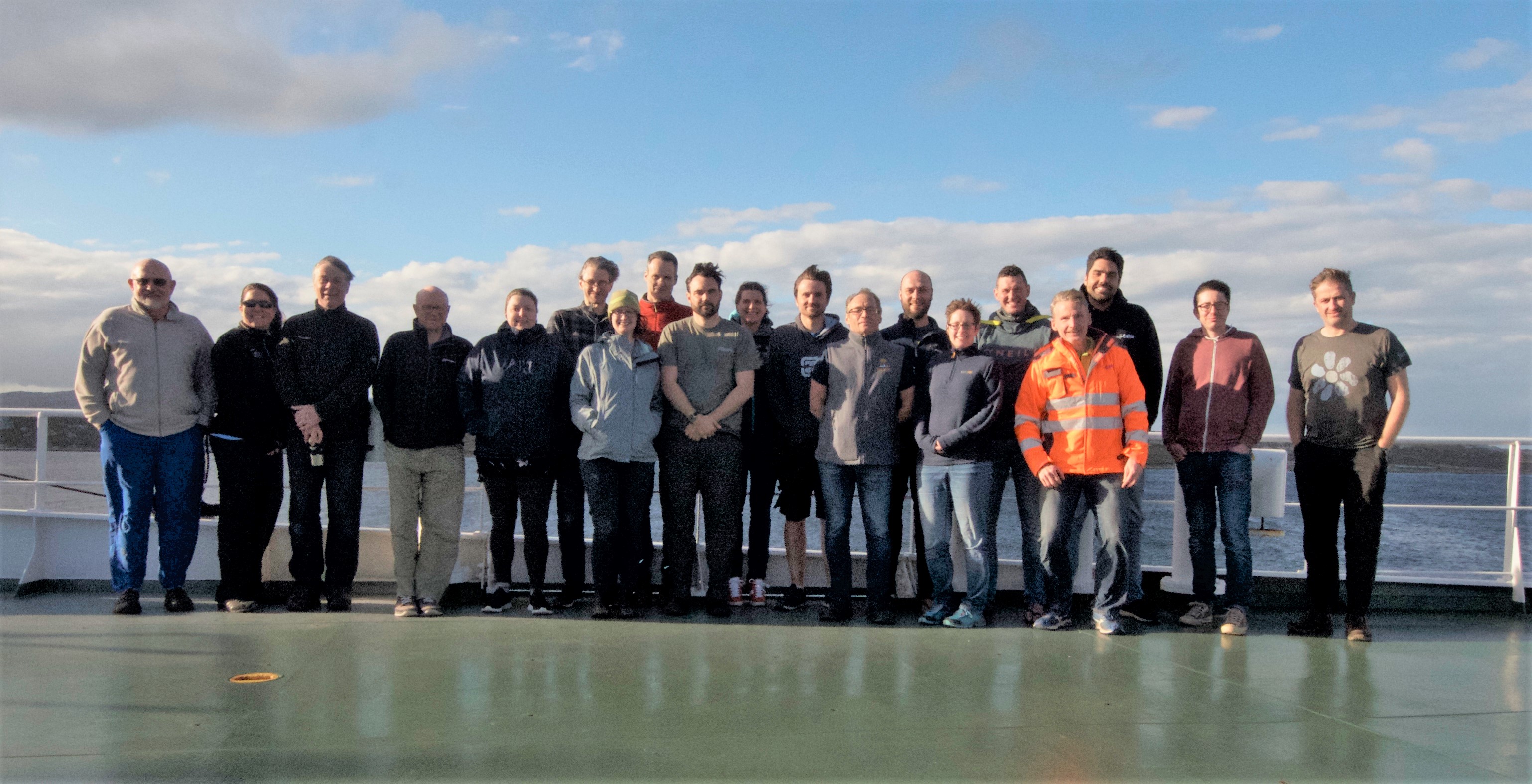Marine research expedition sets sail for the South Atlantic
A team of scientists set sail this week (12 March) for the remote South Atlantic islands of Tristan da Cunha and St Helena.
This mission is part of BAS’ commitment to using its expertise to work closely with other research groups, governments, international development organisations, universities and businesses all over the world to collect and interpret crucial scientific data that shapes policy, protects the environment and ultimately improves people’s lives.
The team of scientists and marine life observers aim to study the ecosystems living on and around the islands’ underwater mountains, known as seamounts.
They will spend 35 days onboard the RRS Discovery (operated by the National Oceanographic Centre) as part of the Discovery 100 expedition. This cruise is the second of three research cruises, planned as part of a joint Cefas Blue Belt and British Antarctic Survey UK-ODA funded project (Find out more here).
On arrival at Tristan da Cunha, members of the Tristan conservation and fisheries teams will join the ship. The cruise will map the ocean floor, collect biological specimens from trawls, gather water samples from the ocean, and deploy deep water cameras that can operate at depths in excess of 1000 metres. The main focus for this part of the research cruise is to provide whole ecosystem information on life in and around the seamounts. The aim is to provide the data and tools to help Tristan protect their marine environment, ensuring sustainable management of resources, now and into the future.
After spending 11 days at the Tristan seamount, the ship will travel to St Helena where the scientists will spend around 11 days surveying the waters surrounding the island. This research will focus upon the ecosystems that live in the water column, with a view to improving the understanding of the food webs that underpin tuna fisheries around the island.
Dr Simon Morley, ecophysiologist and Principal British Antarctic Survey Scientist on the project, says:
“The seas around Tristan da Cunha and St Helena are crucial for the islands’ economies, which rely heavily on fisheries and tourism as well as their cultural identity, which is inextricably linked to the ocean. This research cruise is part of a 3-year project which aims to provide the islanders with improved tools and the information required to manage their marine ecosystem into the future.”
Cefas’ lead Blue Belt Programme Scientist Dr Martin Collins explains
“Our knowledge of Tristan da Cunha and St Helena’s marine environment is surprisingly scarce. Last year’s marine survey significantly improved the information we hold – but there’s so much more to discover. The better we understand these ecosystems and the marine life they support, the better scientific advice we can offer on how to protect biodiversity and support thriving ecosystems.”
This is a collaboration with multiple partners including Cefas and the Natural History Museum.
The team are due back in the UK in April after just over a month at sea. Follow @CefasGovUK for updates on the Discovery 100 expedition.
